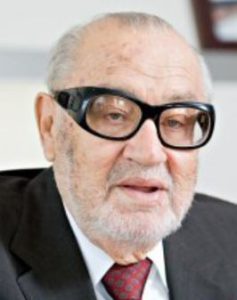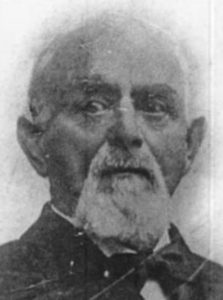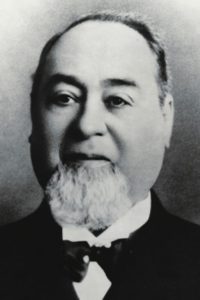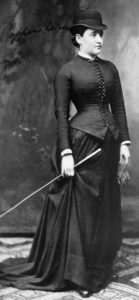Israel’s Richest Man

Sammy Ofer (Courtesy: www.sammy-ofer.com)
Shmuel Hershkovitz (1922-2011) was born in Romania and raised in Haifa. He grew up by the seashore as his father ran a ship supply shop near the port of Haifa. Hershkovitz himself worked for the Dizengoff shipping company in his youth. When World War II broke out, he enlisted in the British Navy and served on a minesweeper in the Mediterranean. He later fought in Israel’s Independence War serving in what would become the Israeli Navy. Hershkovitz was among Israel’s first naval officers. After the war, he worked for the family business before purchasing his own ship to import goods for the new State. As the business expanded and the fleet of ships grew, Hershkovitz changed the name of the company, and his own last name, to “Ofer”. In 1969, the company partly merged with Israel’s largest shipping company, ZIM. It continued to operate under the management of Ofer’s brother, while Ofer himself moved to Europe to start a new shipping business. By the late 80s, his company had a fleet of over 200 ships, and partly owned Royal Caribbean Cruise Lines. It later expanded into real estate, banking, and other industries. Ofer became Israel’s richest man, with a net worth of several billion dollars. He shared a lot of that wealth, too. In 2007, he donated $25 million to the Rambam Hospital in Haifa, most of which went to build a 2000-bed state-of-the-art underground, bomb-proof hospital. (The facility has now been converted into a coronavirus treatment centre.) The following year, Ofer donated £20 million to London’s National Maritime Museum—the largest private donation to a museum in British history. He gave sizeable gifts to Tel Aviv Medical Center and IDC Herzliya as well, and established the Medicines Foundation to subsidize the cost of cancer treatment for those in need. All in all, Ofer donated over $100 million to hospitals in Israel. He also gave $20 million to build the Sammy Ofer Stadium, the home of Maccabi Haifa and Hapoel Haifa soccer clubs and Israel’s second-largest sports facility with over 30,000 seats. In 2008, Ofer was knighted by Queen Elizabeth. His two sons remain among the richest Israelis in the world (though they live in Monaco). Last week, his son Eyal donated 10 million shekels to three Israeli hospitals to help fight coronavirus. His other son Idan gave the largest ever donation (£25 million) in honour of his father to the London Business School, whose townhall has since been renamed the Sammy Ofer Centre.
Words of the Week
Every Jew is obligated to study Torah, whether he is poor or rich, healthy or ill, young or old. Even if one is destitute or if he has familial obligations, he must still establish fixed times for Torah study.
– Rabbi Moshe ben Maimon, the Rambam, 1135-1204 (Mishneh Torah, Hilkhot Talmud Torah 1:8)



